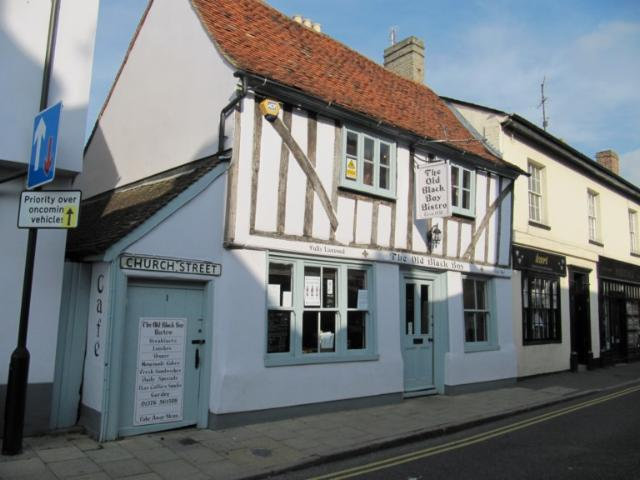Crime and Punishment 2: A second case of Manslaughter.
10.30 pm, 15th July 1839. Two young men, in their early twenties, emerge from the King's Arms, having spent the evening at a meeting of a tradesmen's club. They set off to walk home, completely unaware that the evening would end in tragedy.
Suddenly, a cry behind them: "Which is he? Stop him!" The person raising the hue and cry has a dog with him and runs up to them, punching one of them in the face.
A chase ensues: running footsteps, the dog being urged on. Witnesses assume it is all a "lark" and take no steps to intervene. Soon afterwards the sound of a heavy blow is heard and the pursuer falls to the ground, bleeding heavily from a head wound. After a time he is able to stagger home where a local surgeon attends him. He survives the next day or so but the wound proves fatal.
Michael Cook, the landlord of the Black Boy Inn, Church Street, had been drinking in the King's Arms and in fact was so drunk that the barmaid had refused to serve him. He had been going over his "battles", clearly nursing a grievance against someone. No one had seen him with anyone in particular.
When Richard Browning Smith, a butcher, and his friend Uriah Gage, a leatherworker, left the King's Arms, Cook came out behind them. He was after someone and called out. Uriah Gage thought it was all a joke and pointed to his friend saying, "This is he." Cook then attacked Browning Smith with his fists and set his dog on him.
Browning Smith ran towards his shop in East Street with Cook and the dog in pursuit. Reaching the shop, Browning Smith seized a broom and dealt Cook a blow on the front of his head with it, fracturing his skull and causing a bleed on the brain which was to prove fatal. Cook left a widow and six children.
At first Browning Smith pleaded not guilty to a charge of manslaughter, but his counsel advised that he should change his plea. It was not felt that he had been in danger of his life when he administered the blow, although he had been attacked first. He therefore pleaded guilty.
At the Assizes in 1840 about a dozen Coggeshall residents, some of whom had known him all his life, spoke in support of Browning Smith, who had just set out in business as a butcher. He was not a violent person and was of a humane disposition, they said. After hearing their testimony, the judge said that he did not feel a custodial sentence would be appropriate in this case. Browning Smith paid a fine of £20, to "Her Majesty", a sizable sum at the time. He went on to build up his business, eventually expanding into farming and employing eight men. He was a pillar of the community.
It might all have turned out very differently. Had he been a newcomer to the village, without all those character witnesses to vouch for him, he might well have found himself incarcerated.


Comments
Post a Comment